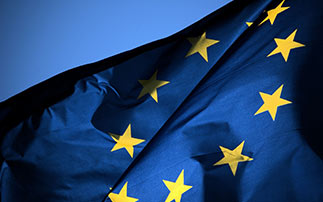The current framework for 2030
As a central issue for the European institutions, climate and environmental action is the subject of a European Green Deal. This roadmap was defended by a strong majority of MEPs on January 15, 2020 (with 482 votes in favour, 136 against and 95 non-voters). It aims to strengthen the EU’s objectives for a sustainable and lasting reduction of greenhouse gases.
The Green Deal is the continuity of the framework for action on climate and energy for 2030, and it aims to achieve :
- a 40% reduction in greenhouse gas emissions compared to 1990 levels;
- an increase of 32% in the share of renewables in the energy mix;
- an increase regarding the energy performance of at least 32.5%.
This strategy is seen as a step towards climate neutrality by 2050, which was announced in the long-term strategic vision for a prosperous, modern, competitive and climate-neutral economy by 2050 (European Commission, 28 November 2018).
Strengthening Europe’s targets in terms of climate action
The action plan validated by the European Parliament responds to the logic initiated this year by European policies and legislation to combat climate change. It thus sets the target of achieving a 50% reduction in greenhouse gas emissions compared to 1990 levels. This intermediate target paves the way for climate neutrality for the EU by 2050.
By 2018, emissions have been reduced by 28%, which only represents a one point increase compared to 2017. At the same time, national and European policies have been developed to accompany the climate transition. The combined action of these texts promises a reduction in emissions of only 60% by 2050. It is therefore necessary for the Member States to take a closer look at the subject in order to strengthen their own environmental ambitions.
The Green Deal reinforces the economic and social dimensions of the previous strategies (clean energy, industry, buildings, mobility, biodiversity, sustainable food chain, elimination of pollution). However, it does so according to a relatively new benchmark, while at the same time referring to social and economic equality and sustainability.
What will be EU’s leadership on the environmental issue?
For several years and since the signature of the Paris agreement, the European Union has been a world leader in the fight against climate change. It has set much more ambitious targets than those agreed under the agreement and its policies. The very nature of the EU makes its policies binding on member states, which must follow up and go beyond their international commitments.
The neutrality sought by the Green Deal, while ambitious, faces several challenges and limitations:
- The policies developed by the Member States are already the result of major efforts. Because of the costs of these measures, the next steps will probably have to be supported by the European Union. However, what would be the image presented to the world if all Member States do not manage to take a united step towards climate emergency?
- The European Union, a major economic and commercial player in international relations, concludes and negotiates agreements to exchange with its partners on all continents. Some are not in line with EU’s environmental measures, or even refuse to take action on this issue. Despite this reluctance, how can we take responsibility for promoting environmental action and economic development?
- Achieving the EU’s objectives for 2030 and 2040 requires joint action by all concerned actors, both institutional and private. For the latter, most national policies are incentive measures. Deeper efforts to change the mentality of civil society must therefore be continued and even increased.
Considering these factors, the EU will have to fight within its borders to assert its position as a world leader in climate action. It will also have to find ways to set its economic partners in motion (first and foremost the UN, the G7 and the G20), to avoid being the leader in a race in which the EU is the only one to participate effectively.
More means dedicated to climate
For the European Union to encourage Member States and civil society to act on climate change, the EU needs to develop a number of weapons:
- At the regulatory level: by the end of 2020, the EU must have a whole set of strategies to guide national action in the areas of biodiversity, industry, the circular economy and sustainable food.
- At the citizens’ level: a “Climate Pact” will be concluded in March 2020 to ensure the role of citizens in defining the actions to be implemented.
- At the grants’ level: the EU needs 260 billion euro of additional investment to implement its Green Deal, i.e. 1.5% of the 2018 GDP. The European Commission is consequently preparing a Sustainable Investment Plan for Europe.
- In terms of payments: The EU is committed to using at least 25% of its budget for climate action. The European Commission should soon propose a Just Transition Mechanism to provide €100 billion in funding.
While it is within its competence to define and enforce strategies, it is more and more difficult for the European Union to increase its budgets and, by extension, its scope for action. Its resources are limited to the amount states agree to give and an increase is inevitably subject to resistance, no matter the topic. Despite the intentions, the objectives decided by the EU are therefore likely to be difficult to implement fully or, at least, there is a risk of delays that postpone the reduction of emissions and their consequences.
With this Green Deal, the EU wanted to propose a landmark text that could accompany the EU’s long-term climate vision. However, as with every ambitious decision by the European Commission or the Parliament, these intentions must be presented to Member States’ courts. Although there is a consensus among them on the urgency of the fight against climate change, it is still difficult to accept an increase in resources that they will have to provide. In a context of increased global competition, where European competitors are only timidly committed to the environment, European ambitions will be difficult to meet.
Jérôme Dumont




